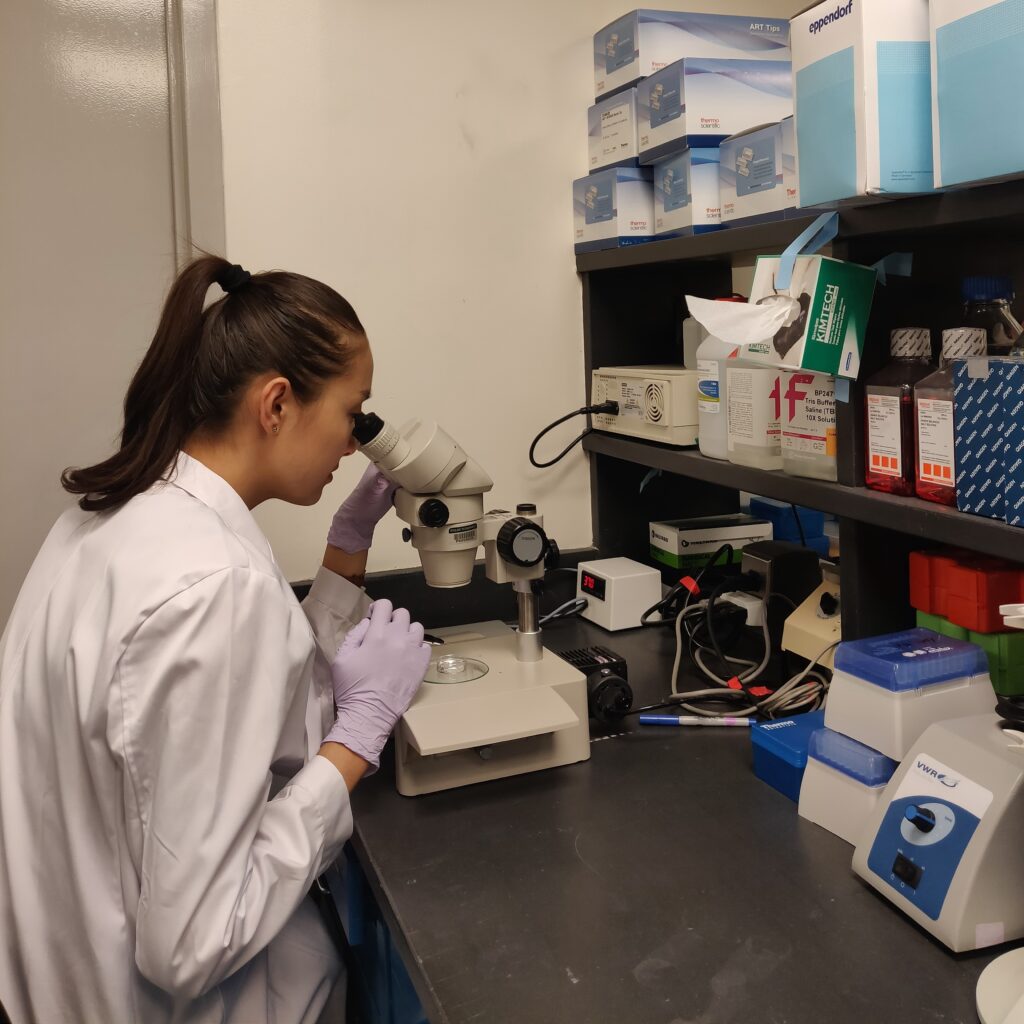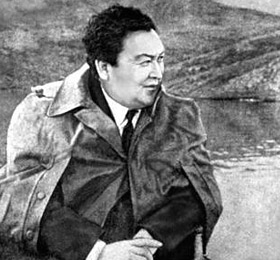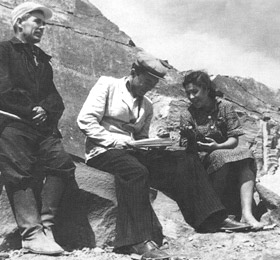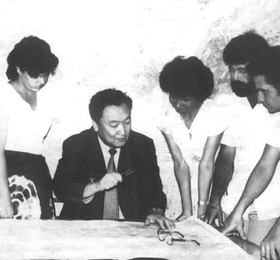Almira Zhantuyakova
Specialisation: Biology. Internship: New York University, USA.
 Almira is from Semey. She is 22 years old. Two years ago, she won an internship at the Shakhmardan Yessenov Foundation competition, after which she was sent to NYU’s Embryology and Infertility Laboratory. She is currently a master’s student at the University of British Columbia. How did a girl who equally adores yoga, cooking delicious food and walking the catwalk at design shows achieve this?
Almira is from Semey. She is 22 years old. Two years ago, she won an internship at the Shakhmardan Yessenov Foundation competition, after which she was sent to NYU’s Embryology and Infertility Laboratory. She is currently a master’s student at the University of British Columbia. How did a girl who equally adores yoga, cooking delicious food and walking the catwalk at design shows achieve this?
What do you remember about the Foundation’s grant competition, and how did you win?
In 2018, I won the Yessenov scholarship. Then for the first time I participated in this competition, both times were difficult, but interesting. And only my second try was successful. In the first round, I focused on my motivation letter. I tried to make it short and to the point, to convey to the reader what I find important and interesting. The second round is fascinating. They give you non-trivial tasks and ask interesting questions. But the main thing there is the candidates themselves: listening to them and their stories is simply inspiring. In winning, I believe the key is to have a clear understanding of yourself and what you are all about: what you want to learn during the internship, how you will handle stressful situations, how you plan to use the knowledge you gain from the internship to implement your future plans, what you find important as a person. I had the answers to these questions.
Tell us about your internship in New York.
I worked on a research project observing the work of doctors at the university clinic. The global goal of my work was to study the process of same-sex reproduction: when an egg does not need a sperm for fertilisation. This type of reproduction is natural for some animals, but in mammals, the embryos die soon after conception. I had to determine what mechanisms are involved. For the first two weeks, I learnt to handle and work with embryos, mastered new techniques, perfected familiar ones, and learnt to manipulate mouse embryos. Sometimes, defective human embryos were also brought into the laboratory (with the consent of the patients, of course). At the clinic, I observed how leading specialists in infertility work with patients and how they perform artificial insemination.
What did you manage to achieve in the end?
From my research, I learnt that same-sex reproduction produces much more unstable genetic elements than conventional fertilisation, which explains their short life spans.
I made two presentations for my laboratory group. My colleagues and my Professor David Keefe liked them. Professor Keefe later said that my work’s results would serve as a basis for further research at his lab. I had not worked with embryos prior to my internship, and therefore, the skills I learnt there are invaluable.
What interesting things besides science did you experience or do in the US?
I took my heart out on cooking: the supermarket shelves in New York are filled with all sorts of products, so I tried many different recipes for dishes and desserts. Together with a fellow intern of the Foundation, we got to see almost all of the city’s sights. As a connoisseur of fashion trends, I especially liked the camp style history exhibition “Camp: Notes on Fashion” and the Metropolitan Museum of Art. I also went to see a friend in Boston, who took me sightseeing around the city, MIT and Harvard.
What’s next for you, Almira?
This internship was a solid basis for research in reproductive biology. It inspired me to continue my studies. I’m currently doing my master’s degree in Vancouver, Canada, at the University of British Columbia. I’m also choosing between medical and doctoral degrees, but it seems even better to simply combine them. Seeing the work of the American clinic, where doctors and scientists masterfully combine scientific and clinical activities, I was eager to help people every day, while simultaneously conducting scientific work.
A few lines about your family, please.
I love my family to the moon and back. I have three younger sisters. Even back in school, I was always fascinated by the idea of being able to create an elixir of life, so that my loved ones would always be around. This is why I eventually chose to do biology, and I haven’t regretted it since.
15.09.20, Stories
Seen by: 702





